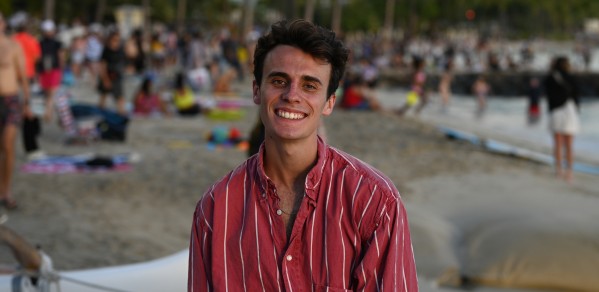
Google PhD Fellowships directly support outstanding graduate students as they pursue their PhD, as well as connect them to a Google Research Mentor.
Cambridge and Google have enjoyed a rich history of academic collaboration, sharing ideas and driving progress in AI. I’m delighted to be a part of that. The fellowship will help me pursue an ambitious research agenda, and I’m very excited to see where it goes.
Isaac Reid
Isaac’s research explores the interplay of structure and randomness in machine learning.
In modern AI, randomness is not a flaw – it’s a feature. Cambridge researchers in probabilistic machine learning have been at the forefront of exploring for decades.
When carefully applied, randomness can enhance model predictions, making them more accurate and efficient in terms of computation and data. However, there’s a catch: not all randomness is equally useful. Adding some structure to randomness – for example, by introducing subtle correlations between samples – can unlock faster, more reliable and more precise predictions.
Isaac’s work leverages tools from applied mathematics and statistical physics to investigate this phenomenon, uncovering why randomness is so crucial for learning and how we can harness it more effectively. These theoretical insights have already spurred real-world practical advances, from efficient Transformers for robotics to novel Bayesian methods on graphs.
Isaac joined the Department of Engineering, Machine Learning Group in October 2022 after completing his undergraduate and master’s degrees in physics at Oxford. Under the supervision of Adrian Weller and Rich Turner, and with the support of Trinity College, he collaborates with researchers across Cambridge, Google, The Alan Turing Institute and Columbia University. He teaches 2P7 the second-year undergraduate mathematics for engineers module, which covers vector calculus, linear algebra and probability, supervises a masters student, and plans to graduate in 2026.
‘Cambridge and Google have enjoyed a rich history of academic collaboration, sharing ideas and driving progress in AI’, says Isaac. ‘I’m delighted to be a part of that. The fellowship will help me pursue an ambitious research agenda, and I’m very excited to see where it goes’.
Isaac thanks the University of Cambridge School of Technology for their help putting together the application.
The Google PhD Fellowship Program
It has been 15 years since Google launched the PhD Fellowship Program to recognise and support outstanding graduate students pursuing exceptional research in computer science and related fields.
Google support the connection between scientific advancement and social impact and are committed to supporting PhD students’ fundamental research through funding and mentorship, to transform the way the toughest problems across foundational science are approached.

